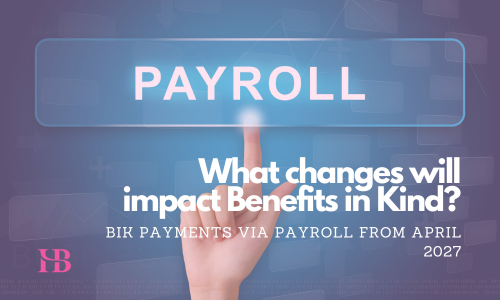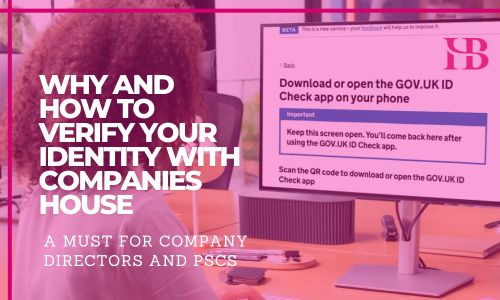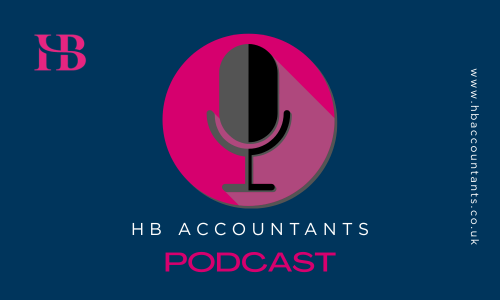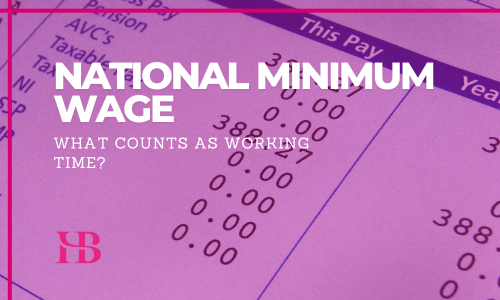From April 2027, Benefits in Kind (BIK) payments will need to be paid and recorded via payroll each month. Businesses need to prepare for this change.

From April 2027, Benefits in Kind (BIK) payments will need to be paid and recorded via payroll each month. Businesses need to prepare for this change.

From 2024 onwards, Companies House has introduced important changes as part of the Economic Crime and Corporate Transparency Act. One of the biggest changes is the requirement for certain individuals to verify their identity to obtain a VIN number. This key step is to improve corporate transparency and tackle economic crime in the UK.

The registration system used by Companies House is changing in 2025 due to the Economic Crime and Corporate Transparency Act. The changes are designed to prevent fraud and ensure that businesses are more transparent. If you are a director of a UK company, a person with significant control (PSC) or a member of a LLP, this will impact you. This is what you need to know.

We are delighted to share that HB Accountants has been recognised as the 26th Top SME apprenticeship employer in England! This achievement reflects the hard work and dedication we put into creating outstanding apprenticeship programmes and supporting our apprentices to succeed. We are committed to nurturing talent and investing in the next generation of superstar professionals.

Welcome back to the HB Accountants Podcast. After the success of our first episode, we are excited to bring you Episode Two, where we tackle a crucial topic for every business owner – tax planning.

A number of workers are not being paid the National Minimum Wage (NMW). Often, this isn’t intentional, it’s because the NMW is more than just a pay rate, it’s a calculation. The main reason why so many companies accidentally underpay their workers is because they do not know about the calculation. Here is the HB overview of the NMW – our payroll team is always on hand if you need advice.

The UK Chancellor of the Exchequer, Rachel Reeves has delivered her second fiscal statement announcing her focus is on growth. In the run up to the event, the Chancellor stated that she ‘remains committed to one major fiscal event a year to give families and businesses stability and certainty on upcoming tax and spending changes and, in turn, to support the government’s growth mission’.

You only have until 5 April 2025 to check your National Insurance record to enable you to fill in any gaps in your NI contributions from 2006 to 2018. If you have a shortfall in your record you have a few days to 5 April 2025 to buy back missed years to qualify for a full state pension – from 6 April you will only be able to fill in gaps for the last six tax years

When starting a business, one of the first decisions you’ll need to make is whether to operate as a sole trader or set up a limited company. Both options has its own advantages and drawbacks. From taxation and liability to administrative responsibilities and credibility. Choosing the right option depends on factors like the nature of the your business, your long-term goals and how much risk you are willing to take. Here we will explore the key differences between being a sole trader and running a limited company to help you make an informed decision.

Significant changes are due to come into effect for non-UK domiciled individuals – also known as non-doms. From 6th April 2025, the current rules for the taxation of non-UK domiciled individuals will end to be replaced by a new residence-based foreign income and gains (FIG) regime. There is a transition provision for those already working under the existing rules.

© 2025 HB Accountants | Privacy Policy | Disclaimer | Terms of use | Website by Origin 1

HB Accountants is the trading name of HBAS Limited, a company registered in England with registration number 5085258. The registered office of HBAS Limited is Plumpton House, Plumpton Road, Hoddesdon, Hertfordshire EN11 0LB, England. Registered for VAT number 866062806.